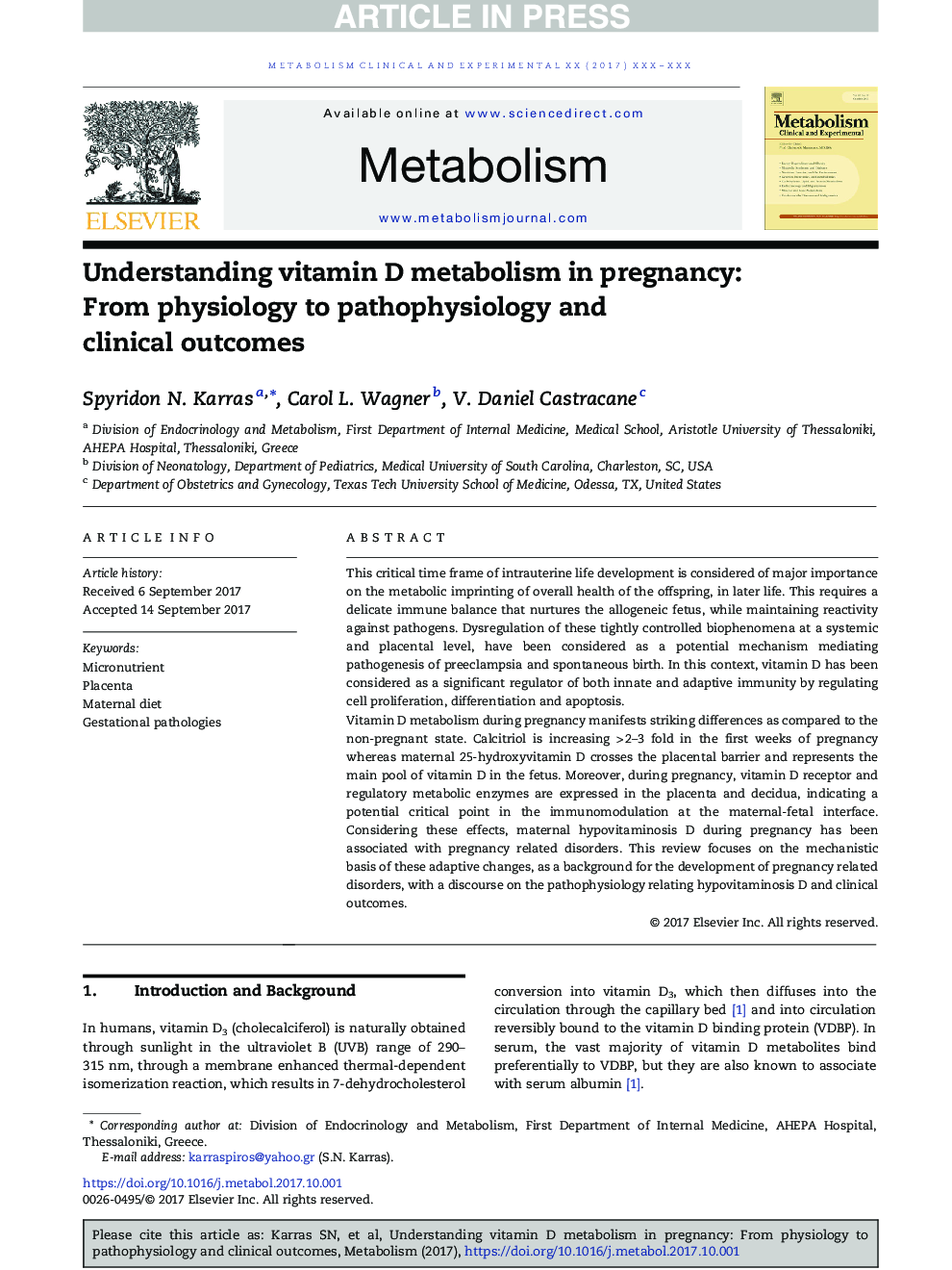| Article ID | Journal | Published Year | Pages | File Type |
|---|---|---|---|---|
| 8632849 | Metabolism | 2018 | 12 Pages |
Abstract
Vitamin D metabolism during pregnancy manifests striking differences as compared to the non-pregnant state. Calcitriol is increasing >Â 2-3 fold in the first weeks of pregnancy whereas maternal 25-hydroxyvitamin D crosses the placental barrier and represents the main pool of vitamin D in the fetus. Moreover, during pregnancy, vitamin D receptor and regulatory metabolic enzymes are expressed in the placenta and decidua, indicating a potential critical point in the immunomodulation at the maternal-fetal interface. Considering these effects, maternal hypovitaminosis D during pregnancy has been associated with pregnancy related disorders. This review focuses on the mechanistic basis of these adaptive changes, as a background for the development of pregnancy related disorders, with a discourse on the pathophysiology relating hypovitaminosis D and clinical outcomes.
Keywords
Related Topics
Life Sciences
Biochemistry, Genetics and Molecular Biology
Endocrinology
Authors
Spyridon N. Karras, Carol L. Wagner, V. Daniel Castracane,
